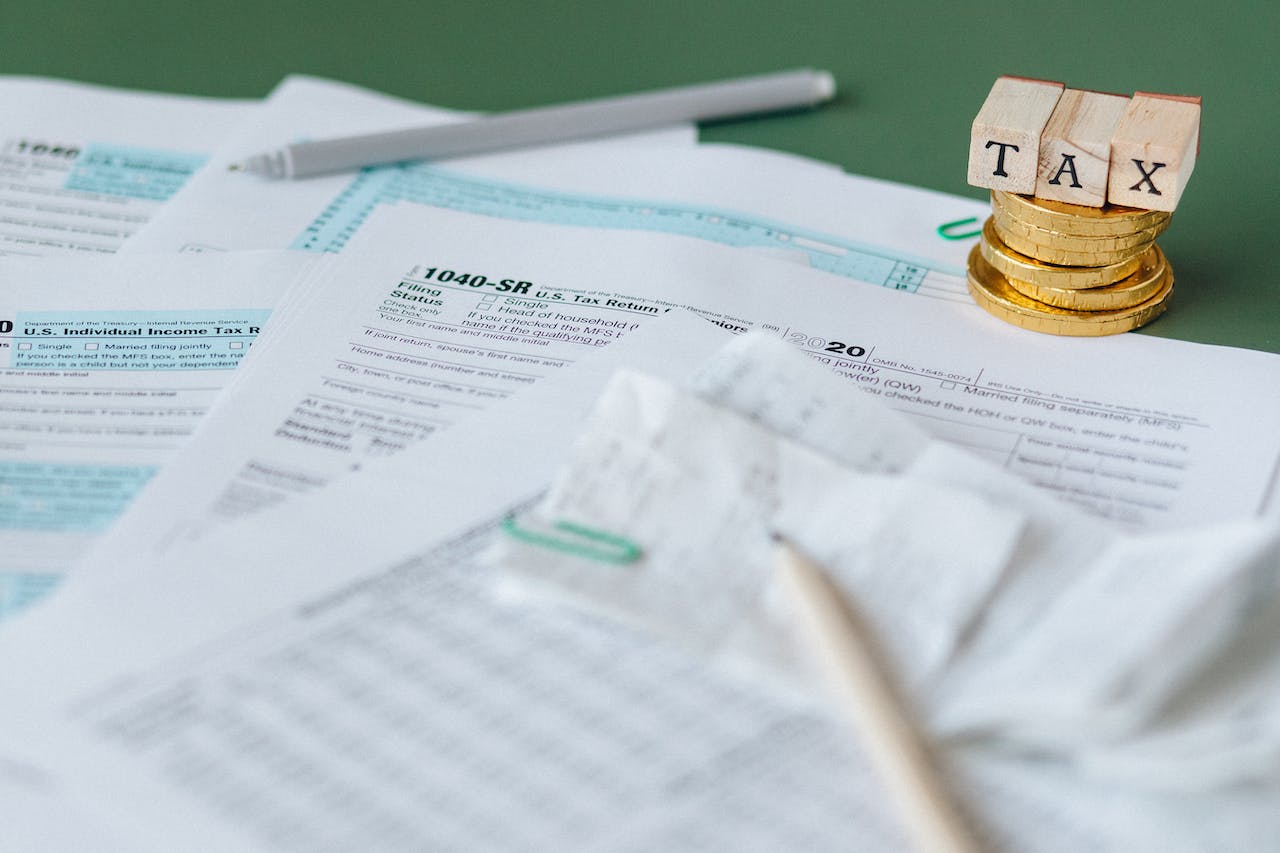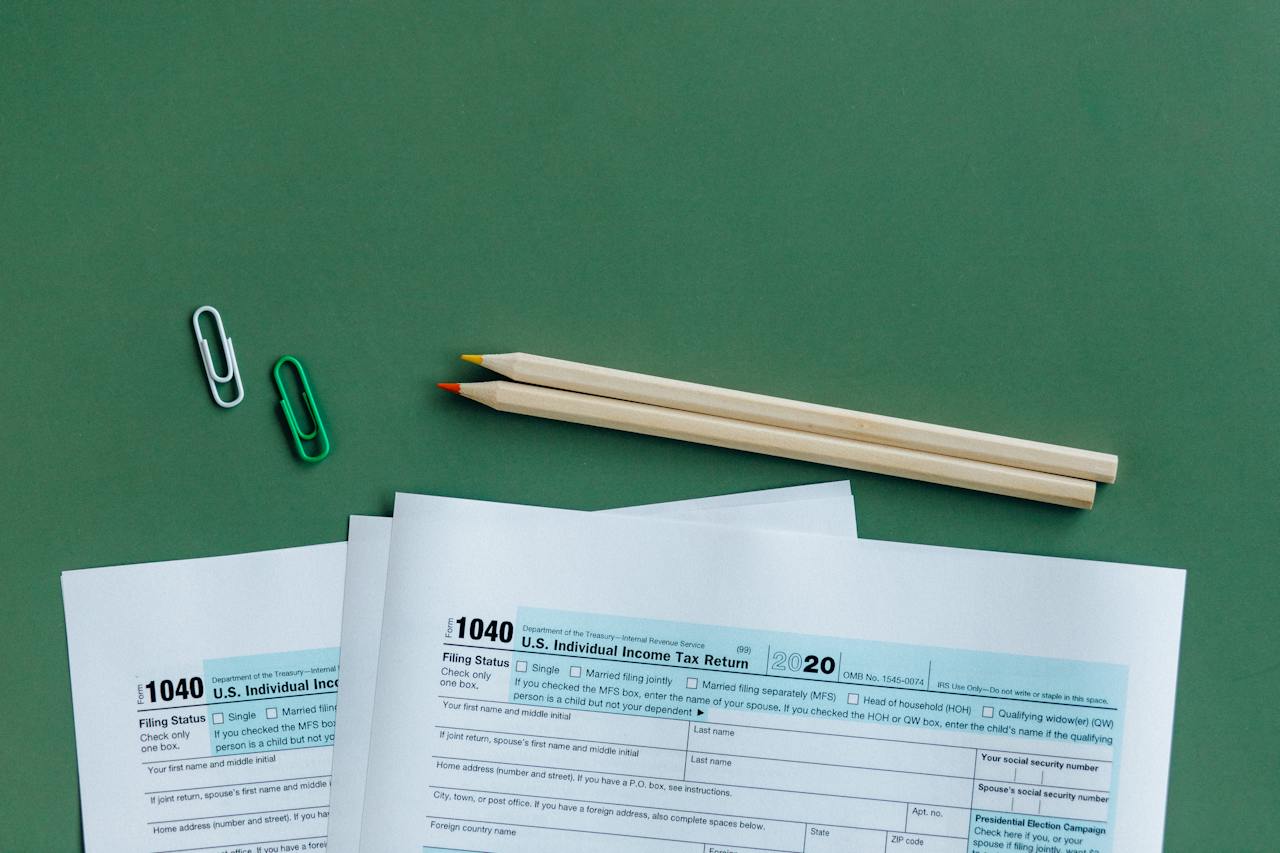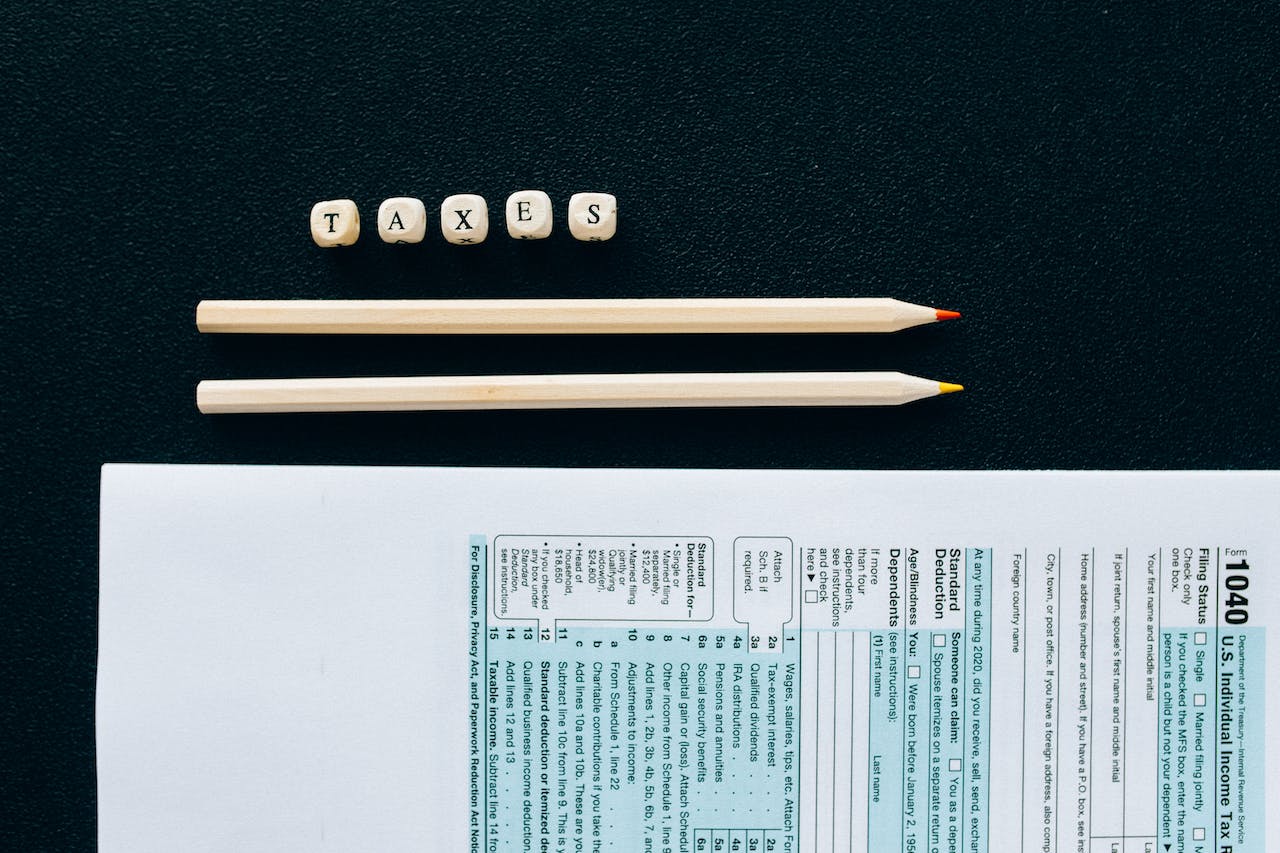Section 1031 of the Internal Revenue Code is a pivotal tool for residential real estate investors. A 1031 exchange fundamentally enables investors to postpone capital gains taxes by reinvesting the proceeds from selling one residential property into another. This financial maneuver is not merely a transaction; it’s a strategic choice with substantial implications for wealth accumulation and preservation.
Section 1031 is more than a legal provision—it’s a catalyst for growth. Investors leveraging this section can unlock a myriad of opportunities, from optimizing property portfolios to fostering long-term financial stability. The importance of 1031 exchanges in residential real estate is underscored by the potential to enhance cash flow, diversify holdings, and, most crucially, defer substantial tax liabilities. Strategic counsel is paramount for those contemplating 1031 exchanges in the residential sector.
Beyond the legalities, consider the broader financial landscape. The advice here isn’t just about adherence to tax regulations; it’s a proactive approach to maximizing investment gains. From identifying optimal replacement properties to assessing potential tax consequences, learn how investors leverage 1031 exchanges as a formidable tool for wealth creation.
Understanding Section 1031 for Residential Properties
A 1031 exchange is a strategic financial tool allowing investors to defer capital gains taxes when selling one residential property and reinvesting in another. Investors can leverage the like-kind exchange provision to optimize their property portfolios and, in turn, foster long-term financial stability.
Tax Implications and Benefits Specific to Residential Properties
Executed strategically, a 1031 exchange offers a direct pathway to defer capital gains taxes, presenting a distinct advantage by preserving valuable resources for reinvestment and yielding greater returns.
Deferment of Capital Gains Taxes
One of the primary benefits of a well-executed 1031 exchange for residential properties is the deferment of capital gains taxes. This deferral enables investors to reinvest the entire proceeds from the sale into a replacement property, facilitating portfolio growth without immediate tax burdens.
Suppose an investor sells a residential property for a substantial gain. Without a 1031 exchange, a significant portion of the profit will get allocated to capital gains taxes. However, by utilizing a 1031 exchange, the investor can reinvest the full proceeds into another residential property, deferring taxes and leveraging the entire amount for increased potential returns.
Preserving Valuable Resources
By deferring capital gains taxes, investors can preserve substantial financial resources that would otherwise be allocated to tax payments. This preservation allows for more significant capital to be reinvested, enhancing the potential for increased property value and generating higher returns over time.
Enhanced Cash Flow and Portfolio Diversification
The deferral of taxes through a 1031 exchange provides investors with increased liquidity. This enhanced cash flow can be strategically employed to acquire properties with higher income potential, fostering a diversified real estate portfolio. Diversification, in turn, mitigates risk and positions investors for long-term financial success.
Qualification Criteria for Like-Kind Residential Properties
Investors must navigate specific qualification criteria to embark on a 1031 exchange for residential properties. In this context, like-kind residential properties extend beyond structural similarities to include nuanced considerations. Qualifying properties must be held for productive use in a trade, business, or investment.
Let’s examine the qualification criteria:
- Nature of Use: Both relinquished and replacement properties must be used for residential purposes.
- Holding Period: Properties should be held for investment, and a minimum holding period is advisable to establish the intent.
- Location: The geographical location of the replacement property matters, and it should align with the relinquished property’s use.

Properties Eligible for 1031 Exchange in Residential Real Estate
Investing wisely in residential real estate involves an in-depth understanding of the properties eligible for 1031 exchange. Investors can leverage 1031 exchanges primarily for residential investment properties. These encompass a wide array of assets, including single-family homes, multi-family units, condominiums, and townhouses. The flexibility within this category allows investors to diversify their portfolios while enjoying the tax advantages provided by the 1031 exchange.
Conditions for Former Principal Residences in 1031 Exchanges
Certain conditions must be met to ensure eligibility for a 1031 exchange involving a former principal residence. These conditions are:
- The property must have been used as the taxpayer’s primary residence for at least two of the five years preceding the exchange.
- During the two years immediately preceding the exchange, the property should not have been acquired through a previous 1031 exchange.
- The taxpayer must adhere to the ownership and use requirements in the Internal Revenue Code Section 121.
Limitations on Vacation Homes in Residential Exchanges
While 1031 exchanges offer substantial benefits for residential investment properties, limitations exist regarding vacation homes. The IRS imposes restrictions on properties that serve as personal residences and vacation homes. In such cases, only the portion of the property used for income-generating purposes qualifies for the exchange.
Understanding these limitations is crucial for investors aiming to make informed decisions and optimize the advantages of 1031 exchanges in residential real estate.
Special Considerations for Depreciable Residential Property Exchange
Navigating the complexities of 1031 exchanges for residential properties requires a keen understanding of special considerations related to depreciable assets. Investors must delve into the specifics to make informed decisions and optimize the tax advantages these exchanges offer.
Explanation of Depreciation Recapture in Residential Exchanges
Depreciation recapture is a critical concept that demands attention. When a residential property has been depreciated for tax purposes, a portion of the gain upon sale may be subject to recapture at a higher tax rate. The exchange must account for this recaptured depreciation, affecting the overall tax implications. Investors need to calculate and comprehend the recaptured depreciation to make accurate projections of their tax liabilities.
Scenarios for Avoiding Recapture in Residential Transactions
Despite the implications of depreciation recapture, savvy investors can strategically navigate residential transactions to minimize its impact. One effective strategy involves reinvesting the proceeds from the sale into a replacement property with a higher value. This adjustment can help offset potential recapture, providing a viable means of optimizing tax benefits within the constraints of the 1031 exchange regulations.
Importance of Professional Guidance in Residential 1031 Exchange
Maximizing capital gains through residential 1031 exchanges demands more than knowledge—it requires expertise. Our 1031 exchange specialists at NNN Deal Finder bring a wealth of experience crafting tailored strategies for dealing with depreciable residential properties. Engaging with our specialists ensures access to professionals with a comprehensive understanding of tax implications specific to residential exchanges.
At NNN Deal Finder, we delve into the details, providing investors with precise calculations and projections. This ensures that investors are well-informed about the financial implications of their decisions, allowing for confident and strategic investment moves.
Recent Changes to 1031 Rules Impacting Residential Real Estate
The TCJA, enacted in 2017, profoundly impacted residential 1031 exchanges. Before the reform, investors could execute 1031 exchanges on a broad spectrum of personal property. However, with the TCJA, the focus shifted exclusively to real property. This adjustment necessitates carefully evaluating assets involved in residential exchanges to ensure compliance with the revised regulations.
Transition Rules for Personal Property in Residential Transactions
Understanding the transition rules for personal property is crucial for investors navigating residential exchanges post-TCJA. Specifics include:
- Identification Period: Investors must adhere to a 45-day identification period to declare replacement properties, emphasizing the need for swift decision-making.
- Qualified Intermediary Involvement: The TCJA mandated the involvement of a qualified intermediary in personal property transactions, ensuring a secure and compliant exchange process.
Exclusions and Qualifications for Residential 1031 Exchanges
Navigating exclusions and qualifications is paramount for success in residential 1031 exchanges.
Exclusions
The exclusions under the TCJA specify certain properties that no longer qualify for 1031 exchanges. Investors must be acutely aware of these exclusions as they navigate the 1031 exchange landscape. Understanding which properties are ineligible ensures that investors make well-informed decisions in alignment with the TCJA regulations.
- Primary Residences: Properties used as the taxpayer’s primary residence are explicitly excluded from 1031 exchanges. This means that if an investor intends to exchange a property that serves as their primary home, it does not qualify for the tax deferral benefits provided by Section 1031.
- Second Homes: Similarly, properties used as second homes or vacation homes are also excluded. If the property is used for personal enjoyment rather than business or investment, it falls outside the scope of like-kind exchanges.
- Personal Use Properties: Any property primarily held for personal use, such as a summer home or a property for family recreation, is ineligible for a 1031 exchange. The exchange program focuses on properties held for investment or business purposes.
Qualification Criteria
The qualification criteria for a residential 1031 exchange involve specific conditions that investors must carefully consider. Due diligence in property selection and compliance with these criteria will contribute to a seamless and financially beneficial exchange process.
- Intended Use: The replacement property must be acquired for business or investment purposes, underlining the necessity for the property to generate income or be used in a business operation.
- Like-Kind Requirement: The replacement property must be like-kind to the relinquished property. For residential properties, this generally means any type of residential real estate, such as a single-family home exchanged for another single-family home.
- Equal or Greater Value: The fair market value of the replacement property must be equal to or greater than the fair market value of the relinquished property. Investors should be prepared to invest an amount equal to or more than the property they relinquish.
- Identification Period: Within 45 days of relinquishing the property, the investor must identify potential replacement properties. This requires decisiveness and strategic planning within a relatively short timeframe.
- 180-Day Rule: The investor has a maximum of 180 days from the sale of the relinquished property to complete the acquisition of the replacement property. This timeline emphasizes the need for a prompt and efficient exchange process.
- Qualified Intermediary: The involvement of a qualified intermediary is mandatory. The qualified intermediary holds the funds from the sale of the relinquished property and ensures a smooth exchange process, preventing the investor from having direct access to the funds.

Tax Implications: Cash and Debt in Residential 1031 Exchanges
Understanding the tax implications associated with cash and debt in residential 1031 exchanges is paramount for investors seeking to optimize their financial outcomes. When completing a residential 1031 exchange, any cash or funds not reinvested into the replacement property may be subject to capital gains tax.
This underscores the importance of meticulous planning to ensure that all sales proceeds are utilized to acquire the replacement residential property, allowing investors to defer taxes effectively.
Consideration of Mortgage Loans and Debt in Residential Transactions
The treatment of mortgage loans and debt in residential transactions can influence the tax implications of a 1031 exchange. Investors can leverage mortgage financing to acquire replacement properties without triggering immediate tax consequences. However, it’s crucial to carefully navigate debt structures to align with IRS regulations and preserve the intended tax benefits.
Potential Taxation of Reduced Liability in Residential Exchanges
Reducing liability, such as paying off a mortgage on the relinquished property, can have tax implications. While it may reduce overall debt, it might result in a higher amount of cash proceeds, potentially subjecting investors to capital gains tax. Strategically managing reduced liability is essential to mitigate tax consequences and ensure a smooth 1031 exchange process.
Navigating a 1031 Swap Residence for Residential Use
The Safe Harbor Rule is pivotal in guiding investors on properly using replacement residential properties acquired through a 1031 exchange. To qualify for safe harbor protection, investors must meet specific criteria, including a minimum rental period. This rule provides a secure framework for investors, clarifying the allowable use of the property while safeguarding the intended tax benefits.
Limitations on Immediate Conversion to Residential Principal Residence
Immediate conversion of a replacement property into a residential principal residence is subject to limitations. Investors must adhere to a holding period before converting the property for personal use to retain the tax-deferred status achieved through the 1031 exchange. Understanding these limitations is crucial for investors planning a shift from investment to personal residence.
Impact of 2004 Law Changes on Residential Investor Strategies
The landscape of residential 1031 exchanges underwent notable changes in 2004, impacting investor strategies. The modification limited the ability to execute quick turnarounds from investment to residential use, emphasizing the need for strategic planning. Investors must adapt their approaches to align with the post-2004 legal framework, emphasizing long-term investment objectives and comprehensive planning.
Reporting Residential 1031 Exchanges to the IRS
Investors initiating a 1031 exchange involving residential properties carry the obligation to inform the IRS of their intent. Timely notification is crucial to stay within the legal framework and maintain eligibility for tax deferral benefits. Failure to fulfill this obligation can lead to penalties and potential loss of tax advantages. Therefore, investors must prioritize prompt and accurate communication with the IRS throughout the exchange process.
Form 8824: Key Information Required for Residential Exchanges
Form 8824 serves as the cornerstone of reporting for residential 1031 exchanges. Investors must provide detailed information, including property descriptions, acquisition and relinquishment dates, and financial details. Accuracy in completing this form is paramount, as any discrepancies may trigger audits or complications in the tax deferral process. Investors should approach the completion of Form 8824 with precision, ensuring all relevant details are accurately documented.
Consequences of Incorrect Reporting in Residential 1031 Exchanges
Incorrect reporting in residential 1031 exchanges can have significant consequences. Investors may face penalties, and the IRS may challenge the legitimacy of the exchange, putting the deferred tax benefits at risk. To avoid these pitfalls, investors should seek professional guidance to navigate the complexities of reporting accurately and comprehensively.
Engaging with tax professionals familiar with the nuances of residential exchanges can safeguard investors from potential liabilities and ensure a smooth reporting process.

Final Thoughts
For investors seeking sustainable wealth creation, 1031 exchanges emerge as a strategic tool offering tangible benefits. The ability to defer capital gains taxes empowers investors to retain and reinvest more of their proceeds, fostering financial growth. Beyond tax advantages, this approach facilitates portfolio diversification, allowing investors to optimize their holdings.
For those navigating the complexities of residential 1031 exchanges, the NNN Deal Finder is a reliable and resourceful ally. Our team of 1031 specialists, well-versed in the intricate details of the process, offers concrete strategies to enhance the efficiency and profitability of exchanges. From managing tax implications to identifying lucrative replacement properties, our expertise adds substantial value to the investor’s journey.
To harness the full potential of residential real estate investments through 1031 exchanges, take a proactive step and schedule a consultation with the NNN Deal Finder. Gain personalized insights and ensure a seamless process that aligns with your financial objectives. Your path to success in residential real estate awaits – initiate the journey today.
Frequently Asked Questions (FAQs)
What are the rules for using a 1031 exchange for residential investment properties?
Investors must adhere to stringent criteria to utilize a 1031 exchange for residential investment properties. The property must be held for investment or business purposes, and a qualified intermediary must facilitate the exchange.
Can a primary residence qualify for a 1031 exchange, or is it limited to investment properties?
No, primary residences are not eligible for 1031 exchanges. The exchange is specifically designed for investment or business properties, ensuring the preservation of tax benefits.
How does the IRS define “like-kind” properties when it comes to residential 1031 exchanges?
In the context of residential 1031 exchanges, “like-kind” refers to the nature and character of the properties involved rather than their grade or quality. As long as they meet the criteria, residential properties can be exchanged for other residential properties.
What are the tax implications if I convert my 1031 exchange property into a primary residence?
Converting a 1031 exchange property into a primary residence triggers a change in use, subjecting the property to potential recapture of previously deferred taxes. Investors should be aware of the tax implications and plan accordingly.
Is there a limit to the number of 1031 exchanges I can perform with residential properties?
There is no set limit on the number of 1031 exchanges an investor can perform with residential properties. However, each exchange must comply with IRS regulations, including timeframes and property qualifications.

